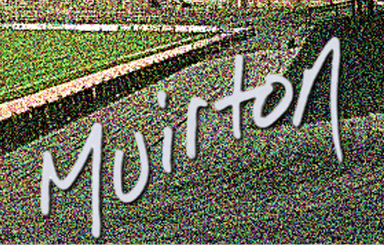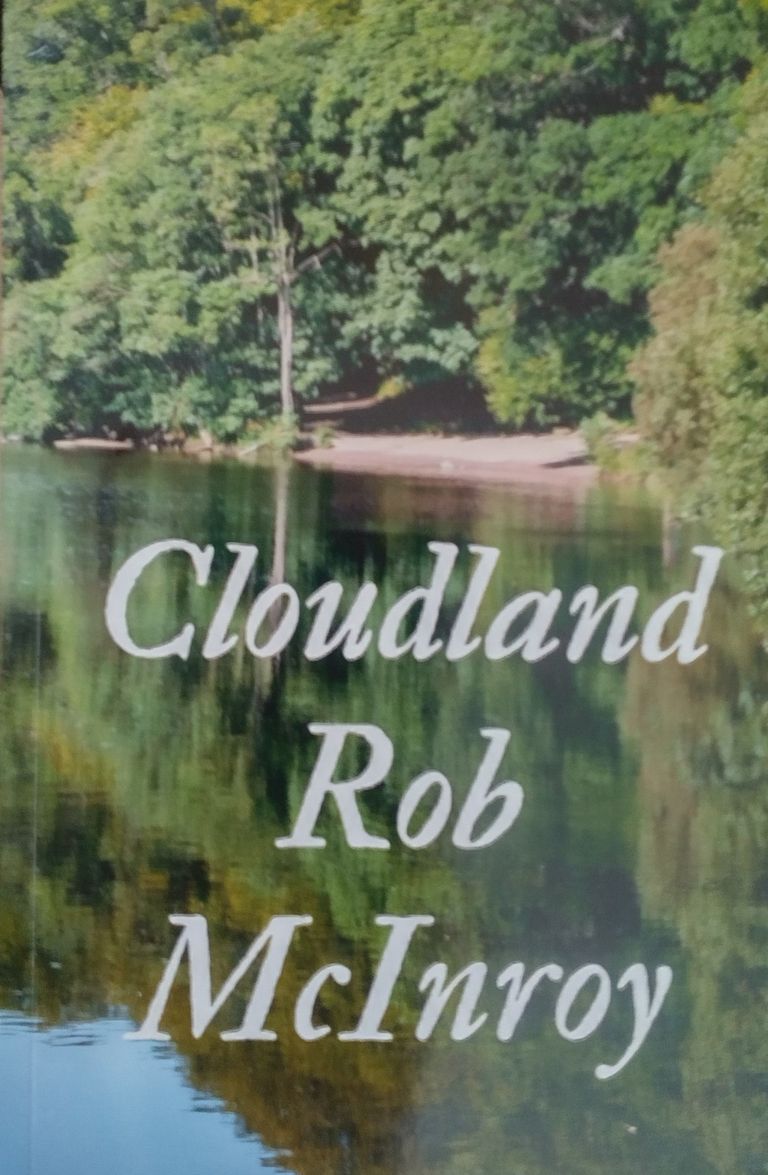
Cloudland
Nineteen-year-old American Ash Harker arrives in Crieff, Perthshire at Christmas, 1984 seeking a man called Jack Duguid, who her recently deceased mother revealed was Ash’s real father. Lonely and grieving, Ash finds companionship in the Cloudland café with the Jasmine Orchestra, a band of similarly lost souls. She befriends Jack and settles into Crieff living, makes friends, even falls in love. For the first time in her life feels like she belongs.
Hanging over her, though, is the secret of her past. She quickly realises that, whatever momma said, Jack is not her father. But who is?
Gradually, her history is unravelled and as the ghosts of the past are evoked their stories leave a lasting impact not only on Ash but on every single member of the Jasmine Orchestra.
Cloudland is a humorous but serious-minded bildungsroman exploring identity and kinship and what it means to belong. It is an exercise in pluralism and an examination of community. In the manner of Carson McCullers’s The Heart is a Lonely Hunter or Cormac McCarthy’s Suttree, the novel uses a group of outsiders to cast a light on a society from which they are excluded. This gathering of the disconnected offers an oblique slant on love and suggests a pining desire to belong.
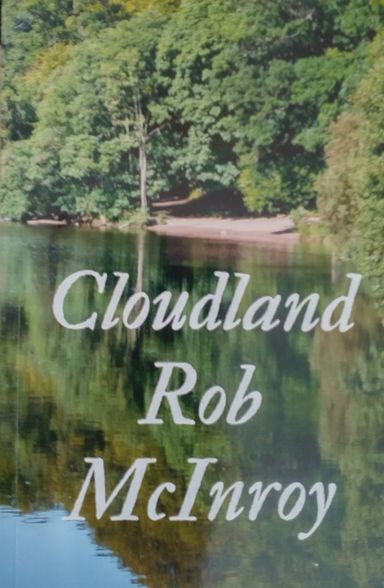
Slant slab of town, red sandstone, clinging, ever climbing. The American girl got off the bus on the High Street. She wore a jacket too thin and carried a rucksack too heavy. There was a smell in the air, acrid against the heavy damp of the atmosphere, like a fire choking on its own smoke. The girl stopped an old woman and asked directions to the library. There, she sat in the reference section and pulled out the telephone directory, checked for the name Jack Duguid and made a note of the address. A librarian in a kilt loaned her a town plan and she copied it into her notebook and marked the route to Jack Duguid’s house.
She stayed in the library until it closed at five o’clock, then gathered her belongings and walked outside. Her breath fogged the air. Hunger scratched her stomach. She swung her rucksack over her shoulder and walked downhill, past the Meadows and the bridge over the railway cutting until she came to a little row of houses at the end of Broich Road. Beneath the streetlight she checked her map and looked at Jack Duguid’s house. There was a precarious gate and a narrow path and a dark doorway. She stood outside and shivered. Inside, nothing moved. She watched for half an hour until darkness fell like a rebuke, then turned and retraced her steps. Behind her, in the split-the-winds between King Street and Burrell Street, was a patch of green and, at the rear, nicely darkened, a wooden shelter. Ash Harker installed herself in her new refuge and watched fog swirling beneath the street lights and ice crystals forming on the pavement and waited.
In this manner night turned. Crieff, last Friday before Christmas, 1984. A north wind blew itself towards the Ochils, trailing frost and snow. The town clung to the Knock hill, straggling from Ferntower to Dallerie, the Laggan to Braidhaugh. Here, five thousand souls slept. Street lights cast shadows over doorways unemployed until morning. A police car passed the shelter three times but didn’t see the troubled watcher within. A sheen of ice covered pavements and empty roads. Night, time of dreams, unfolded itself. Ash began to shiver, her fingers sore, feet numb. This was her second night on the streets but the first in Scotland, following her arrival in Edinburgh that morning, stowed away on a train from King’s Cross. It was much colder here, the cold much denser. Silence hung black as a blanket. The hours cycled and Ash counted each on its way. The dead sat with her.
Meet Ash Harker
Next morning, Ash stood under the shower for ten minutes, cleaning the grime of days from her body. Two large tattoos covered the backs of her legs, three-dimensional zips rising from her ankles to her knees, seemingly opened half-way down her calves to reveal in trompe-l’oeil perfection layers of skin down to bone. On September 30th, the day momma died, she hitched a ride into Richmond because there were no tattoo parlors in Berea and, besides, Richmond was the only town in Madison County licenced to sell alcohol. She lay on her stomach and reached for the tumbler of bourbon and winced at its sourness. She looked at her prone reflection in the mirror and hated herself. She was an outsider, an aberration.
“You sure you wanna do this?” the tattooist said.
“I said already.”
He drew the design she had given him on each leg in turn and wiped her skin with cleaning solution. The smell reminded Ash of the hospital she had walked out of three hours earlier. She closed her eyes. Jes start. Make it hurt. Sorer’n hell. What he thought, this guy, was that he was tattooing a design onto Ash’s skin. Ash knew otherwise. She knew he was bringing to the surface what was already there. What it is is an excavation. Into me, Ash Harker, whoever she is. Inside her was a pseudomorphic hole that once housed her true self but now was filled by an alien presence, something Ash neither recognised nor trusted nor liked. Tattoos would bring it to the surface. She already knew that by the time she was forty she would be tattooed neck to toe, every centimetre of her body covered except her heart. That would remain untouched, untouchable. And each tattoo would represent a defect inside her and the pain she inflicted on everyone around her. They would be her mark.
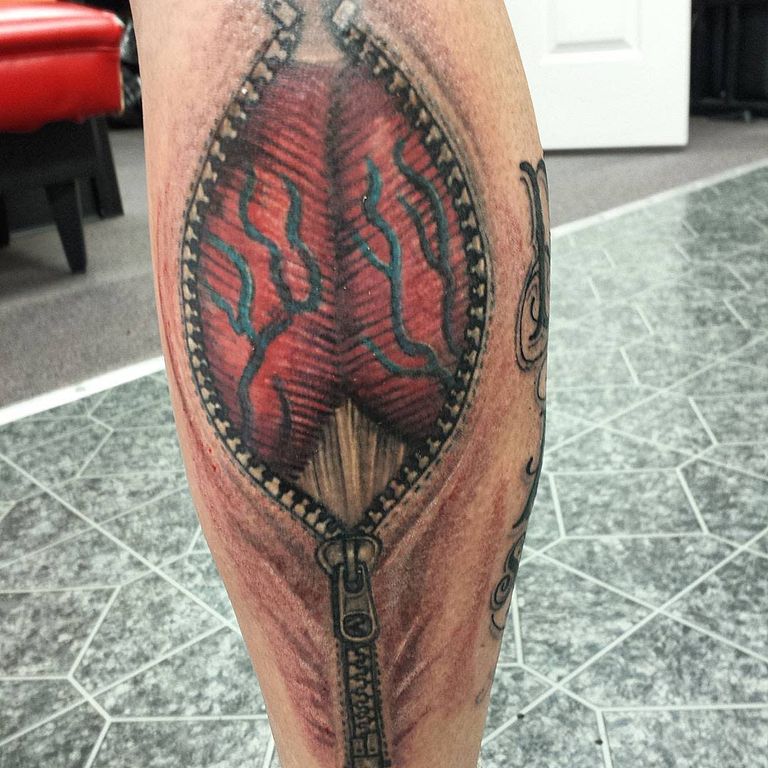
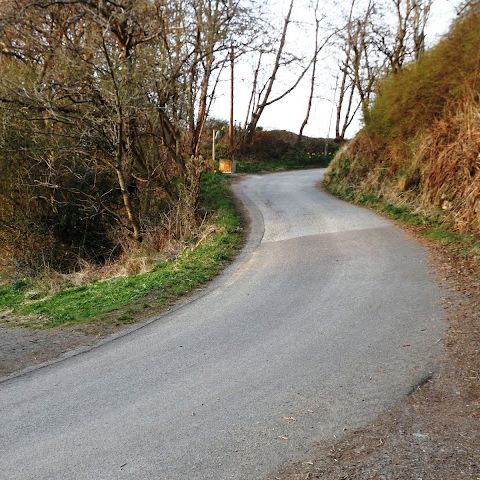
Meet Jack Duguid
Jack Duguid left his house before seven. He walked down Dallerie brae, round the corner, falling bank, rugby pitches, past the big house, cottages, deserted laundry, ruined buildings. He climbed a fence into fields. Frosted and frozen grass, exhausted beneath skies growing lighter but no brighter, skies universal grey, low, lowering. Echo of tree branches rattling in the wind. Roll of nearby water. Over there, if you knew it, the cemetery wall, rhododendrons behind, graves beyond. Jack knew it. He knew that. He walked the field, along its edge meandering beside the river. Grass lay flattened in his wake, footsteps like slices in time. He stooped and took a photograph. Another. Another. He backtracked and photographed the same spot from a different angle, avoiding evidence of himself. Morning light, insubstantial, consequential. Blade of grass. Glimmer of frost. Earth, cold earth, hard and brown and bottomless earth…
Meet the Old Man
“Gale,” shouted the old man. He strode up the hillside, .22 rifle crooked over his right arm, hunting bag nestled against his kidneys. His face was hard, skin darkened by a lifetime outdoors. Wrinkles, huge and furrowed, creased the extent of his brow and radiated from his eyes.
“Come on,” he said but the dog seemed in distress. It barked. It set itself firm against the slope on its haunches, back rigid, head raised. It barked again. And again. The old man looked up. Above them, twenty yards or so in the air, hovered a bird, bigger than any the old man had ever seen. It soared on the current, enormous wings forming a shallow V. Image of savage beauty, mesmerising. Its tail, long and wedge-shaped, was tipped white, the bottoms of its wings white sliding into grey. Its body was golden. The old man could clearly see its legs, muscled like a Powderhall sprinter, like they belonged on a much larger animal. He could see its yellow eyes, its slate-grey beak. The dog growled, fur raised, front legs stiff with fear.
Suddenly, the eagle swooped. It made for the dog, which rose up and bared its teeth in terrified aggression. The old man waved his rifle towards the bird. It swung away and flew upwards and hovered once more and the waiting game recommenced. It was the most beautiful object the old man had ever seen. Killing perfection. It swooped again and the dog barked again and the old man waited until the bird was close and swung his rifle again. He felt a surge of air as the bird dropped close. Eyes cold, like metal, unblinking. Its beak was open, a mawing expanse defined by the sharpest sharp and the blackest black. The old man was transfixed as it plunged towards the dog, claws outstretched, ready to grip, ready to rip. The dog reared up, its bark high-pitched and demented. It seemed the bird must take the dog but, at the last, it raised up and, as though plucked by an invisible presence, it soared into the air once more. It hovered twenty yards up but did not attack again and, finally, it drifted on a thermal high into the sky, looping into the grey lour of the cloud until the old man could no longer see it.

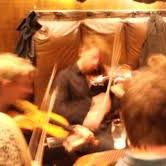
Meet the Jasmine Orchestra
Kester Dunning picked up his guitar and rang the opening notes of The Kesh Jig and one by one the Jasmine Orchestra joined in. Bob Kelty watched Ash. Ash watched Jack. She sipped her coffee, rationing it to make it last. Warmth flowed through her. The Jasmine Orchestra finished The Kesh and pummelled their way through Give Us A Drink Of Water as though teaching it a lesson. Each band member played in a different time signature and the effect was oddly melodious. Kester broke his G string but played on. Jack Duguid, on second guitar, strummed in silence behind Kester’s lead, his fingers hovering an inch or so above the fretboard. Mally Vogel seethed into a fractious flute. Carmela Cant battered her bodhran and Emily Pound, ungainly, self-conscious, bowed politely on her fiddle. A modulated groan rang out as Joss Stein released his uillean pipes from captivity and belted them into place and they wheezed into life. The volume of noise increased, and it was not wholly ugly.
To Ash, it seemed as though she had been engulfed by music. Music on music, note for note, rising in the air and humming and disappearing like the joins of time made tangible. She watched Jack Duguid pretending to play guitar, his face creased with concentration, following Kester Dunning’s chord progressions. Emily’s eyes flitted from her fingers to Carmela Cant and back again. Kester Dunning ogled Carmela. Mally Vogel slouched in his seat and played as though no one else was there. The music shrilled. It whirred. Fizzed. Cloudland lived.
Meet Joss'n'Jules
Joss’n’Jules were playing cribbage with Hamish and Hamish, the McTaggarts from Madderty. Joss was cheating. It made no difference.
“Last time I saw you,” said Hamish McTaggart, “was in Innerpeffray Library.”
Joss looked sheepish, as well he might.
“You were giving a talk on Bonnie Prince Charlie’s Crieff connections.”
“It wasnae very good,” said Hamish McTaggart.
“Not awfae well researched,” agreed Hamish McTaggart.
“I generally fall to the occasion,” said Joss. He tossed down a card and deliberately miscounted.
“Did you cheat just then?” said Hamish McTaggart, rising to his feet. The ensuing argument lasted many minutes, concluding only when Hamish McTaggart’s bladder could hold out no longer.
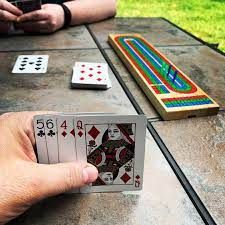
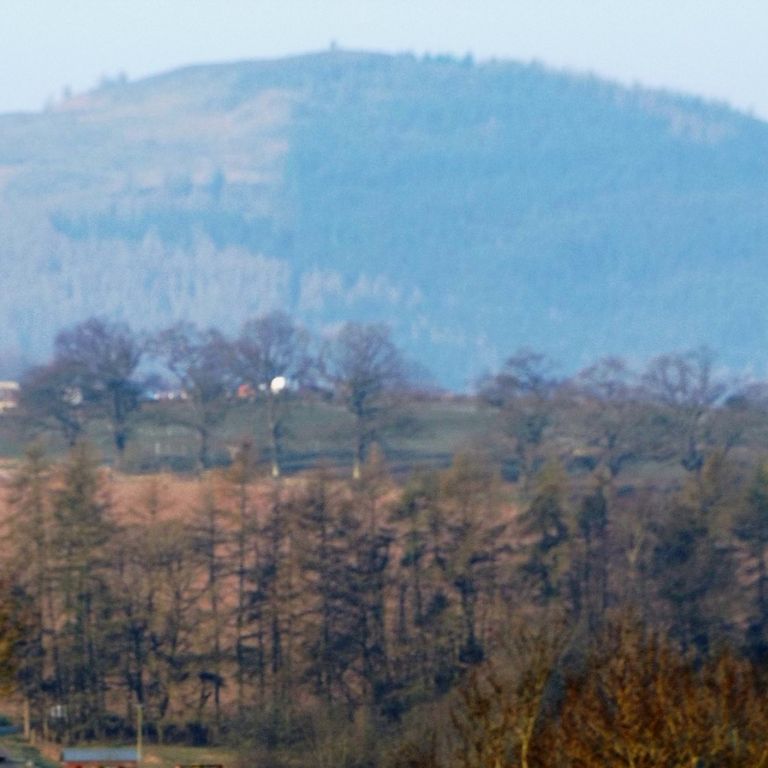
The Strathearn Valley
And Turleum looked down, first day of the year, sun and thin, cold air. And Turleum turned into the Ochils, grander, greater, gradually spreading south and east and west, and beneath the range, nestling in its hollow, in the valley of its history, the town of Crieff rolled into another year and Jack rolled with it and Ash rolled with it and Emily rolled with it and Carmela rolled with it and Joss’n’Jules rolled with it and Kester rolled with it and Bob Kelty rolled with it and 1985 began as it would end, with sorrow and strife and love and romance and all the pain and all the joy that resides within the margins and life turns in that figment before future and after past, in that figment where, if only you could capture it, you could shape your lives the way you saw fit, but you can’t, you won’t, you never could, and life runs past without you and all the while Turleum watches with impassive beauty the folly unfolding beneath.
Cloudland's prizes
Scenes and characters from Cloudland have featured in a number of short stories which have won prizes or been shortlisted. They include:
Whisky Night won first prize in the Writing Magazine competition in February 2018. The judges described it as: “a tour de force of accumulated impressions and heightened perceptions that convey the way death changes everything and nothing: Ash's world reshapes itself in its new form as the story is being written.”
Joss’n’Jules Forever was shortlisted in the Writing Magazine competition in February 2018
Joss’n’Jules Forever was shortlisted in the Brighton Prize in October 2018
Peewit (flash fiction) won third place in the HISSAC Flash Fiction competition, November 2018
Sequela was highly commended in the HISSAC Flash Fiction competition, November 2018
Fresh Watter was shortlisted in the Exeter Story Prize November 2018
The Gamekeeper’s Telling (flash) was Highly Recommended in the London Independent Story Prize in December 2018.
Momma (flash fiction) was long-listed in the Retreat West Flash Fiction competition in December 2018.
The Jasmine Orchestra played Auld Lang Syne was shortlisted by Writers’ Digest in December 2018.
Joss’n’Jules Forever won First Prize in the Bedford International Writing Prize in January 2019
The Silent Approach of Eternity (flash) won second prize in the Shady Grove Flash competition in March 2019
The Entertainer was a winner in the Enizagam Writing Competition in April 2019
Momma won third prize in the Flash 500 flash fiction competition in May 2019
Harbinger (flash fiction) was published in Palm-Sized Press, volume 1, in July 2019
Not Here, Swimming, was Highly Commended in the MTP Short Story competition in August 2019
Oysters and Ink was shortlisted in the Segora Short Story competition in August 2019
Cloudland won the Darling Axe Novel First Page competition in October 2019
And the Byzantium Orchestra Played Clair de Lune won an honorable mention in the Texas Observer Short Story Competition in October 2019
Oysters and Ink was shortlisted in the Writers’ Forum Competition in November 2019
Fair Near A Riverside Town was a finalist in the London Independent Story Prize in March 2020

